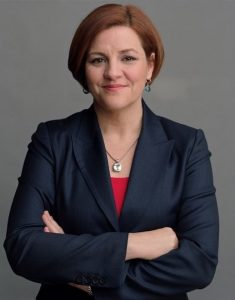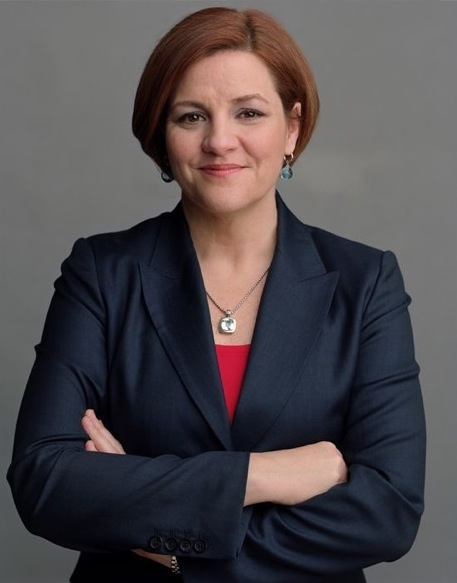
BY PAUL SCHINDLER | City Council Speaker Christine Quinn began this year as such a prohibitive frontrunner in the Democratic mayoral race that for months the major question asked was how likely it was that her opponents could keep her below the 40 percent threshold and force her into a runoff.
Now, Public Advocate Bill de Blasio enjoys the chance to go into the general election without needing to first dispatch his runner-up.
Quinn finished up on primary night with just 15.5 percent of the vote, having lost her Council district, winning the votes of just 16 percent of women voters, and finding herself bested by de Blasio among gay, lesbian, and bisexual voters by a 47-34 margin.
How did that happen?
In primary night comments to Gay City News, West Village Assemblywoman Deborah Glick and Rachel Lavine, a Democratic State Committee member, suggested that homophobia and misogyny were at play. According to that perspective, the independent spending by the Anybody But Quinn (A.B.Q.) forces, which totaled more than $1 million, was unmatched by any similar effort waged against the men in the race. Women and LGBT voters, they argued, were inattentive to the importance of having one of their own at the head of the table. Meanwhile, a Times poll pointed up reactions to Quinn from some voters that included derogatory terms often aimed at women in power — including “petty,” “mean,” “bossy,” and “argumentative.” And surrogates for de Blasio, they said, most prominently the candidate’s wife, Chirlane McCray, were all too happy to play on those attitudes.
It’s true that A.B.Q.’s embrace of independent expenditure attacks on Quinn had a certain irony. The Supreme Court’s 2010 ruling in the Citizens United case that made this spending possible in a city that prides itself on its public financing system was widely and vociferously denounced by progressives.
McCray’s comments about Quinn, in which she suggested the speaker does not understand challenges facing ordinary women in New York such as taking “care of children at a young age,” have been hotly debated — in no small measure because the Times’ Maureen Dowd initially misquoted the exchange, stripping it of its full context. McCray’s statement, in Dowd’s corrected version, is less inflammatory than as originally rendered, though it does nevertheless manage to paint Quinn as something of the Other.
These points, however, obscure far more salient lessons from the collapse of Quinn’s campaign. The most significant is that her close ties to Mayor Michael Bloomberg — and particularly her role in allowing him to seek a third term — proved fatal among Democratic primary voters. On this point, the speaker undoubtedly lulled herself into complacency, if not outright denial due to Bloomberg’s ability to win in 2009 despite the outcry over the term limits extension and to his remarkably high approval ratings after 11 years in office.
There were warning signs, however. Though he spent more than $100 million in that campaign, the mayor beat then-Comptroller Bill Thompson, who waged a lackluster campaign, by less than five percent. Quinn herself, facing a primary challenge that year from two opponents fueled in large measure by the term limits flap, barely eked out a majority.
The escalating controversy over the N.Y.P.D.’s controversial stop and frisk policy — which has greatly aggravated tensions between the mayor and progressive Democrats — added to Quinn’s Bloomberg problem. Since the spring of 2012, at least, she has often stood with critics of stop and frisk, most dramatically at their Father’s Day rally in Harlem 15 months ago. However, at forum after forum this year, Quinn insisted she would be happy to keep on Commissioner Ray Kelly should she become mayor. To voters, that position either masked her critique of stop and frisk or seemed like the sort of straddle they hate to see from politicians. Her allegiance to Kelly paid fewer and fewer dividends — if in fact it ever paid any — as the commissioner stepped up his criticism of Council efforts to curb police autonomy. Quinn stayed true to Kelly, but it seemed increasingly improbable he would ever consider staying on if she won.
The mixed message on police-community relations speaks to a broader problem the Quinn campaign had in communicating its message and her record. De Blasio repeatedly hammered her on her delay in embracing paid sick leave legislation, largely affecting lower wage employees, and in watering it down when doing so. At first, the issue looked like a winner for Quinn. When she appeared with labor leaders and other progressive advocates early this year to announce agreement on moving forward, the tableau provided a sharp contrast with the public advocate standing alone hours later to quibble that it was all too little, too late.
But de Blasio didn’t let the issue go — and Quinn didn’t seem all that interested in rebutting his critique. More than a few voters told me they faulted her for blocking paid sick leave — not just for a few years, but for good. They seemed unaware she had triumphantly cloaked herself with advocates for low wage New Yorkers when endorsing compromise legislation. Uppermost in their minds was de Blasio’s charge of inaction.
A similar dynamic at times played out with LGBT voters. In all likelihood, Quinn lost the gay vote because many in our community believed that other, larger issues trumped the leadership she could be expected to deliver for the community. But at least some gay New Yorkers believed she had stood in the way on key community concerns. I heard complaints that she didn’t do anything for homeless LGBT youth, when in fact the City Council year after year stepped into the breach to restore or replace funding cuts from the budgets delivered by Bloomberg and, since 2011, Governor Andrew Cuomo.
Several people also told me they were upset by Quinn’s support for using condom possession as evidence in prostitution arrests, something she has criticized for a long time. In like fashion, the refusal of the city’s health department to make it easier for transgender New Yorkers born here to change the gender designation on their birth certificates stands despite longstanding criticism from the speaker.
In citing these misconceptions, I am not attributing Quinn’s loss to voter ignorance. The fault, instead, lies with the campaign she ran. Even after it was clear that endorsements from the city’s three dailies were not staunching her slide and de Blasio’s surge, ads touting the New York Times’ support for her — produced in the most generic style possible — continued to flood the airwaves. In what was clearly shaping up to be a change election, the ads merely reinforced Quinn’s image as the insider, establishment candidate.
What we never saw was the speaker facing the camera and talking to New Yorkers in a personal way about her vision for the city. Faced with de Blasio’s brilliant ad featuring his son Dante, humanizing Quinn was her only hope in the campaign’s final days.
It may be that the die was cast the day Quinn okayed the Council’s extension of term limits in late 2008, and the contest this year was simply a protracted matter of sorting things out before Democratic voters inevitably settled on a candidate they trusted to provide a clear departure from the Bloomberg years. For me, Quinn remains a leader with essentially progressive instincts and an impressive record on a host of issues that matter. I’m sorry that I often couldn’t find that candidate in her campaign’s big picture narrative.
Paul Schindler is editor-in-chief of Gay City News, a sister publication of Downtown Express.



































